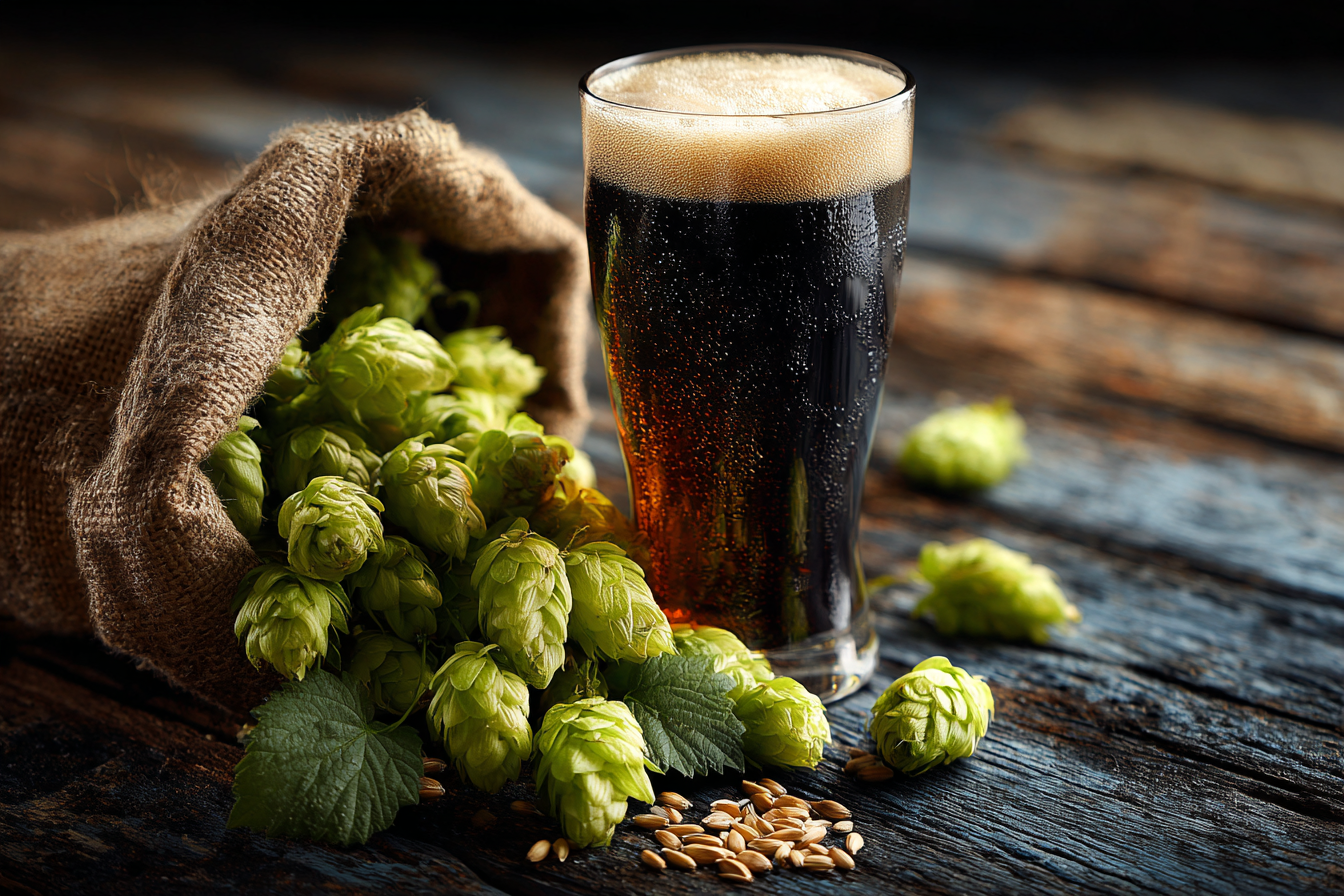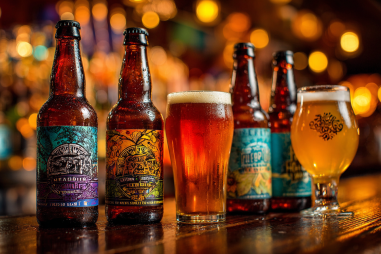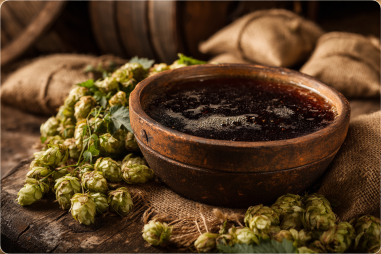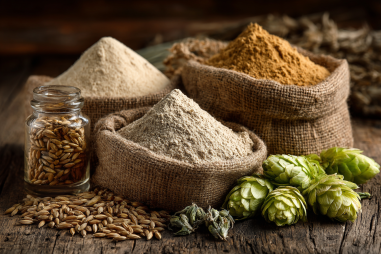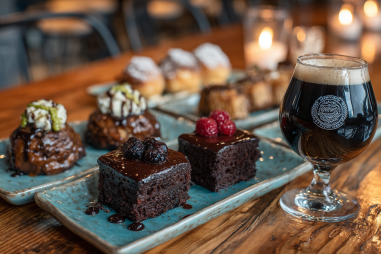Black IPA, often dubbed the “Cascadian Dark Ale,” occupies a unique niche in the craft beer world. Combining the robust roasted malt flavors of a stout or porter with the vibrant hop character of an IPA, this style demands careful hop selection and balance. The hops used not only bring a layer of bitterness to cut through the roasted malts, but also contribute essential aromatic qualities—from pine and resin to bright citrus and floral notes. Whether you’re a seasoned brewer or an enthusiastic homebrewer, understanding the best hop varieties for Black IPA can elevate your brew to a remarkable, flavorful experience.
Understanding the Role of Hops in Black IPA Brewing
Hops are a crucial ingredient in any IPA, but their role in Black IPA is particularly interesting because of the interplay with dark roasted malts. Roasted malts can introduce flavors like coffee, chocolate, and caramel, which are rich and intense. Without the right hops, the beer can taste too heavy or one-dimensional. Hops in Black IPA serve a dual purpose: providing bitterness that balances the malt sweetness and contributing complex aromas that brighten the beer.
Additionally, bitterness from hops helps cleanse the palate, making each sip refreshing despite the dark malt profile. Aroma-wise, hops add layers of pine, resin, citrus, and herbal notes—all of which help to differentiate a Black IPA from a stout or traditional amber ale.
Characteristics of Common Hop Varieties Used in Black IPA
When selecting hops for a Black IPA, brewers usually seek varieties that offer bold bitterness paired with distinctive aromatic profiles. Some hops bring piney and resinous characteristics, while others introduce citrusy or floral elements. The choice of hops directly influences the sensory balance of the beer.
- Piney and Resinous Hops: Varieties like Cascade, Columbus, and Chinook provide a classic “West Coast” IPA bitterness with sharp pine and resin notes. These hops stand up well to roasted malts without being overshadowed.
- Citrusy and Tropical Hops: Simcoe, Amarillo, and Citra offer bright citrus, orange peel, and tropical fruit aromas, adding complexity and vibrancy to the beer’s nose and finish.
- Earthy and Herbal Hops: Willamette and Fuggle feature a more subtle earthiness and floral character, which can round out the profile for those seeking balance over fireworks.
- Spicy and Floral Hops: Nelson Sauvin and Saaz contribute unique spicy or vinous notes, often used in smaller amounts to complement more aggressive hop flavors.
How Hop Selection Impacts Flavor and Aroma in Black IPA
The interaction of hop bitterness and aroma with roasted malt flavors is delicate. Too much aggressive bitterness can mask the malt character, while insufficient hops can leave the beer feeling cloying or flat. Hop varieties high in alpha acids are typically chosen to maintain adequate bitterness without excessive hopping volume.
The aromatic qualities from dry hopping or late addition hops bring the complex bouquet that defines a great Black IPA. Aromatic hops are best added during whirlpool or dry hopping phases to preserve volatile compounds. For example, Citra and Simcoe dry hops add punchy citrus and pine aromas that contrast beautifully with the malt roast.
Moreover, darker malts can sometimes mute hop aromas. Choosing bold or well-known hop varieties with pronounced aroma helps ensure the beer’s hop character remains forward and identifiable.
Popular American and International Hops for Black IPA
Many brewers favor American hop varieties for Black IPA due to their assertive bitterness and distinctive aromas, but international hops can also provide interesting dimensions.
American Favorites
- Simcoe: Known for its pine, earth, and berry notes, Simcoe is versatile and adds complexity over roasted malt.
- Citra: Famous for intense citrus and tropical fruit aromatics, it brightens the nose and balances roasted flavors.
- Chinook: Offers a robust pine and grapefruit bitterness; excellent for bittering and late additions.
- Columbus (CTZ): High alpha acids with herbal and spicy notes; useful for both bittering and aroma.
International Contributors
- Nelson Sauvin (New Zealand): Provides wine-like, gooseberry, and tropical fruit aromas, adding an unexpected twist.
- East Kent Goldings (UK): Adds subtle floral and earthy notes, subtle complexity without overpowering bitterness.
- Hallertau (Germany): Mild, spicy, and floral, suitable for balancing more aggressive malt profiles.
Balancing Roast Malt and Hop Bitterness
Achieving harmony between roasted malt bitterness and hop bitterness is one of the trickiest parts of brewing a Black IPA. Roasted malts contribute a dry or harsh bitterness that can feel different from hop bitterness, so brewers must carefully adjust hop quantities and timing.
Often, brewers start with a moderate to high IBU range (50-70 IBUs or more depending on style interpretation), using hops with high alpha acids to prevent excessive hopping volumes. The aim is for hop bitterness to provide a clean, sharp counterpoint to malty roast flavors rather than a muddled bitterness.
Additionally, using lighter specialty malts alongside roasted barley or black patent malt can help keep the malt profile balanced, allowing hops to shine through. Managing water chemistry to enhance hop bitterness perception is also a key step.
Crafting Hop Schedules and Techniques for Black IPA
The timing of hop additions is crucial for developing the bitterness and aroma one desires in a Black IPA. Here’s a rundown of common practices:
- Early Boil Additions: Provide most of the bitterness. Hops added at this stage contribute alpha acids but lose much aroma due to prolonged boiling.
- Late Boil and Whirlpool Additions: Added towards the end of the boil or during whirlpool, these hops contribute flavor and aroma without excessive bitterness.
- Dry Hopping: Post-fermentation hop additions boost aroma dramatically, often using 1-3 ounces per gallon depending on preference.
- Hop Bursting: Adding large quantities of hops late in the boil to focus on aroma while keeping bitterness manageable.
Combining these techniques allows brewers to layer complex hop profiles that stand up against the roasted backbone of a Black IPA. For example, a typical schedule might be high-alpha bittering hops at 60 minutes, followed by citrusy and piney aroma hops at flameout and in dry hopping.
Tips for Homebrewers and Professionals Brewing Black IPA
Whether you’re brewing in a professional brewery or at home, a few key pointers can help you maximize hop impact and achieve balance:
- Choose Fresh Hops: Hops degrade over time, losing aroma intensity. Using fresh, well-stored hops is essential, especially for late additions and dry hopping.
- Experiment with Blends: Don’t rely on a single hop variety. Combining piney, citrusy, and earthy hops creates a layered, multidimensional profile.
- Adjust Water Chemistry: Enhancing sulfate levels can help intensify hop bitterness, improving balance with roasted malts.
- Mind Hop Addition Timing: Late boil and whirlpool hops contribute more aroma; dry hopping can make or break the final nose.
- Use a Palate-Cleanser Grain Bill: Include some malted wheat or oats for smoothness, reducing harshness from roasted malts.
- Don’t Overdo Roasted Malts: Too much roast can overpower hops; aim for a subtle coffee or chocolate note rather than heavy roast flavor.
Finding Your Perfect Hop Blend for Black IPA
Black IPA’s charm lies in its bold combination of roasted malt complexity and dynamic hop character. The best hop varieties to use depend on the flavor and aroma experience you want to create. Some brewers prefer hop-forward profiles heavy on pine and citrus, while others choose subtler, earthy hops to let malt flavors shine through.
By understanding the unique attributes of different hops and carefully balancing bitterness with roasted malt flavors, you can craft a Black IPA that is both flavorful and balanced. Remember, brewing is an art, so experimentation is key—try various hop blends, tweak addition timings, and adjust malt roasts until you find a brew that’s uniquely yours.
Happy brewing, and may your Black IPA deliver the perfect hop bite and aromatic punch!

